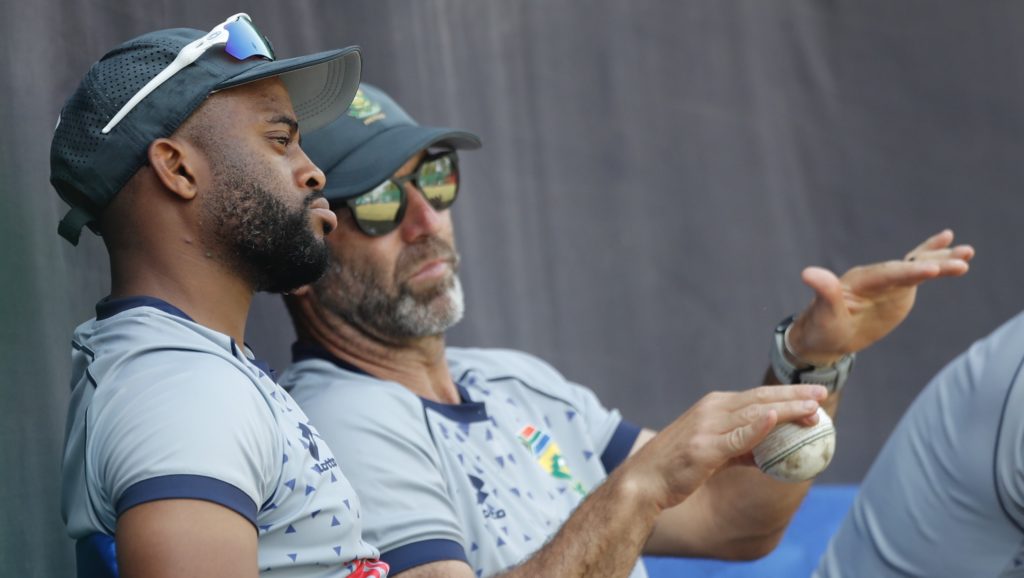The Proteas’ leadership core has brushed off their World Cup exit as a brave effort. They are making the same error as their predecessors, and more mediocrity awaits, writes RYAN VREDE.
It’s been four days since the Proteas lost their semi-final to Australia. In the immediate aftermath of the defeat, it is reasonable not to expect too much rational analysis or considered future planning.
But all the South African cricket fraternity has been offered since then is rhetoric that characterises the team’s defeat as heroic, and flawed defence of decisions that contributed to their exit.
Cricket South Africa said: “Their journey to the semi-finals has not only been a testament to their talent and hard work but also to their commitment to representing South Africa with honour and pride on the global stage.”
Director of cricket Enoch Nkwe said: “Cricket South Africa is immensely proud of the Proteas’ performance in the ICC Men’s Cricket World Cup. Their journey to the semi-finals, marked by exceptional skill and spirit, sets a strong foundation for our future endeavours, particularly with an eye on the 2027 World Cup. While we didn’t achieve the ultimate victory, the determination and competitiveness shown by our team were truly admirable.”
It is concerning that the body tasked with building world champions was proud of a performance marked by reckless batting, a diabolical bowling powerplay, and a clutch of dropped catches.
On his arrival, captain Temba Bavuma, who averaged 18 at the tournament and led the side in defeat to the Netherlands, had a pop at his critics for perceived ill-treatment, cited his role in partnerships as a defence for his mediocre batting, and claimed his teammates would have told him if they didn’t think he was up to the standard required.
Proteas ODI captain Temba Bavuma defends captaincy and playing while not 100% fit and admits to batting challenges. pic.twitter.com/Xbb6YKvh7q
— Mahlatse Mphahlele (@BraMahlatse) November 19, 2023
The latter point was particularly perplexing. Proteas players have and will never instruct their skipper to step down, not least of all white players to a black African captain. The consequences are potentially career-ending.
Head coach Rob Walter offered zero comforts either. Indeed, his levels of emotional distress raised serious questions about his competency. Asked whether he’d watch the final, Walter quipped: “To be honest, there’s about a 1% chance I’ll be watching. And to be even more brutally honest, I actually don’t care.”
Australia and India are the benchmarks in ODI cricket. They are who the Proteas should aspire to be. Walter’s mandate is to develop his team into world champions. The information that could be gained from watching these teams compete in the format’s marquee match, and especially from watching how Australia’s temperament allowed their talent to overwhelm the hosts, would have been invaluable in this context.
Perhaps Walter ultimately did watch the final. For the sake of a broken-hearted cricket nation, I hope he did. Anything less is a gross dereliction of duty.
The apparent apathy, and dishonesty, which borders on delusion, are deeply worrying, but all-too-familiar. We’ve seen this with previous World Cup exits. Nothing has changed.
In the wake of their T20 World Cup exit at the hands of the Netherlands in 2022, Nkwe promised South Africa they were setting up a panel to conduct a “clinical review” of what happened. I trawled through the internet in search of the findings of this review, including combing through all 70 pages of CSA’s Integrated Report, published on 22 November 2022.
Nothing.
Nkwe stated then that there will be a clear strategy going forward, including how they prepare better for the upcoming ODI World Cup. That they lost to the Netherlands again at a major tournament and failed in fundamental ways against Australia, who they’ve beaten in four of their six matches in 2023, suggests that not enough has been done to address key technical, tactical and, most critically, temperament issues since.
Nkwe said he hoped the majority of the squad would be available for the 2027 World Cup, despite eight of the 15-man squad being over 30. I’ve advocated for the retention of a senior core in the past, and have also regularly called for players who aren’t available for every bilateral series or are outside of the contracted group, to be considered for ICC tournaments. But this group of players has failed at two consecutive World Cups, which makes it hard to believe that they won’t in a third, in front of their home crowd, four years from now.
This is unless there is brutally honest introspection, the likes of which has been absent, seemingly avoided under the guise of “looking ahead”, or done with the enthusiasm of a teenager instructed to clean his room.
READ: Bavuma to keep captaining Proteas
Photo: Pankaj Nangia/Gallo Images







